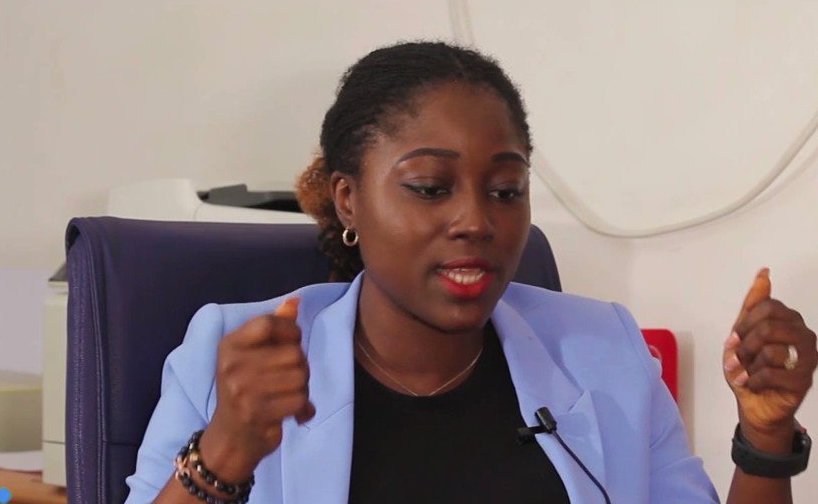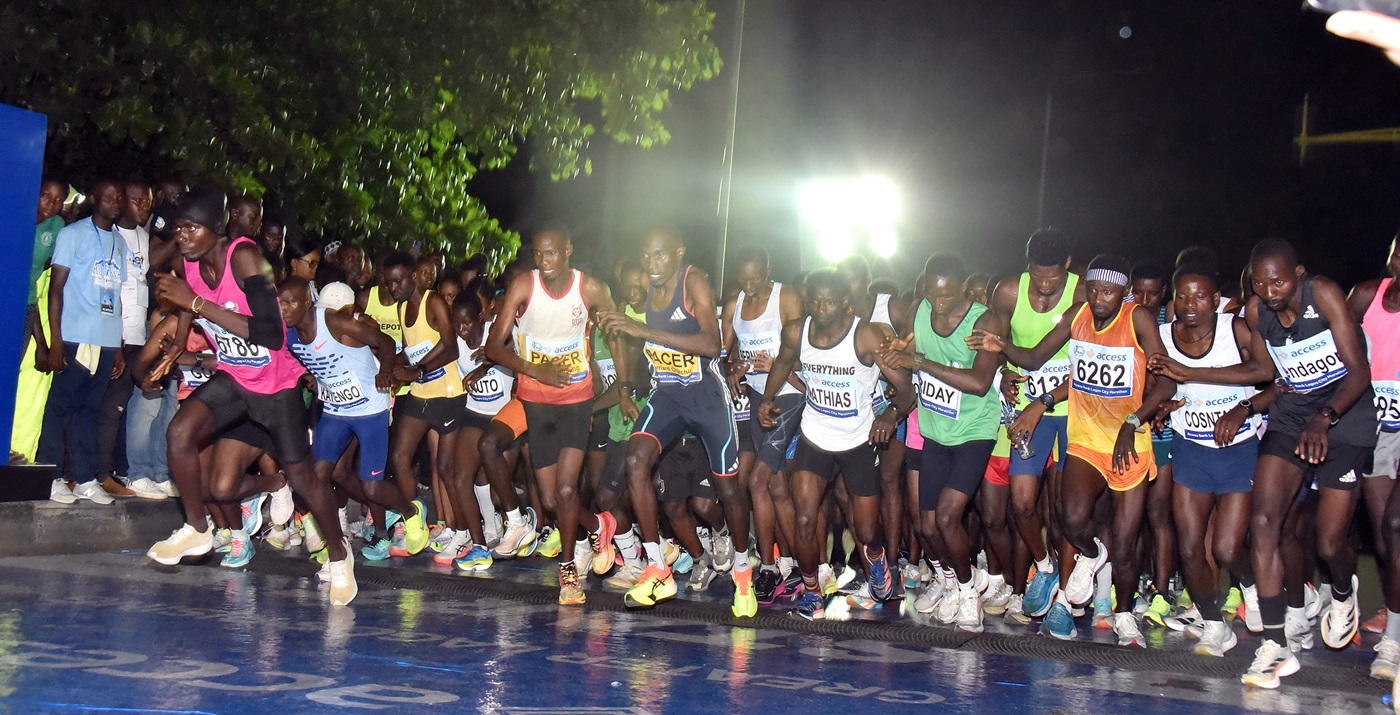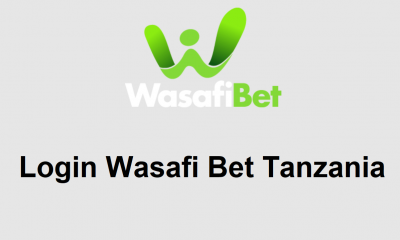Sports
The Rise of Women in Nigeria’s Sports Betting Industry

In recent years, Nigeria’s sports betting industry has experienced exponential growth, becoming a multi-billion-dollar sector. However, like many tech and finance-related industries, it remains largely male-dominated.
In this article, SportsBoom explores the increasing participation and influence of women in this booming market, uncovering a narrative that’s rarely told but increasingly significant.
When looking at the ‘most valuable players’ in the Nigerian I-gaming industry, it’s largely impossible to overlook the renowned Olabimpe Akingba, who not only bagged the award for the most influential woman in gaming 2022 but remains on the list of the top 50 most influential women in i-gaming till date.
Even though she doesn’t view the i-gaming industry as an exception when it comes to male domination. Her mantra is ‘put in as much effort as my male counterparts and build a supportive ecosystem around my family.’ This outlook has contributed significantly to her empathetic leadership style.
The question is could the rise of women in sports betting potentially change the industry’s marketing strategies and target demographics? Akingba certainly thinks so.
She is confident that having more women in leadership positions in the i-gaming companies, would not only foster inclusion and diversity but could attract more female punters and customers. She also deems the general perception of women being emotionally- driven as an advantage that could enhance and promote responsible gaming.
Akingba is thrilled with the intentionality which has been displayed by betting operators in recent times when it comes to including more women in advertisements and the i-gaming workforce, as opposed to what was the case a decade ago.
The negative perception of i-gaming
Most African religions and cultures frown upon sports betting particularly the older generations or generation X who tend to view the industry through a ‘get rich quick scheme’ lens; generation Y appears to be more open-minded, while according to Akingba, generation Z views the i-gaming industry from an ‘entertainment perspective.’
She thinks a shift from the negative perception is possible if there is an increased awareness of the immense contribution which the industry makes to society:
”The regulators at the federal and state levels do a lot to promote societal causes with the tax remitted from the sports betting industry including security support and healthcare. If more light is shone upon gestures like this, it could significantly help reshape the negative perception,” Akingba told betting news site SportsBoom.com.
Speaking of impact, Akingba also thinks that if there is an inclusion of women in leadership roles in the i-gaming industry, it will have a profound effect on the nature of corporate social responsibility initiatives which i-gaming companies engage in:
“Having more women in leadership roles is crucial in terms of how it can translate to CSR, due to our natural wiring, we could push for causes that are more humane in nature and move towards causes that are not necessarily related to sports. The men are doing a great job, but if more women are given leadership roles, I think that’s where the shift will happen.”
The gift and curse of being a woman in the i-gaming industry
The i-gaming industry has been a significant vehicle for women’s empowerment through the employment of more women in the retail space to take up positions like agents and other roles in various sports betting companies.
Akingba is impressed with the level of inclusion of women being displayed by the industry in recent times, as opposed to what was the case a decade ago.
Being a part of the industry has also afforded her numerous opportunities like wearing the ambassadorial hat for the ‘Women in Gaming- the Africa Chapter’, which launched a few months ago and boasts of 350 female members. Akingba explains that the peculiar challenge of data in Nigeria does not allow for an accurate reflection of the number of women in the industry.
In spite of this, she insists that the significant level of female inclusion in the industry through employment, cannot be refuted.
Like numerous industries, the sports betting industry comes with its fair share of challenges, especially for women who go through monthly challenges and difficult choices at various stages of their lives.
Akingba recalls her first time as a mother, which was accompanied by health challenges that necessitated having to put in a request with her employer to work from home:
‘When I was pregnant, I worked with a brand that I had been with for a couple of years. After 3 years of working with them, I was allowed some time off due to a difficult pregnancy. I made 2 requests, an extension of my maternity leave and remote work, based on my doctor’s orders. Both requests were rejected, and I resigned.”
“That decision affected me negatively, I was delighted to have a child, but didn’t want to lose my job. I would’ve liked to have both, and I would have loved to have been extended more empathy. But, if you view it from a different perspective, the company is not running a charity organization. However, I don’t apologize for being a woman and I’m delighted that more companies are now open to remote work, post-COVID.”
Akingba also condemns work environments that enable sexual harassment and normalize sexual innuendos. She states that women who refuse such advances should have their decisions respected and not have to walk on eggshells when they are around bosses who might choose to make the work environment hostile after such advances are rejected.
The future of women in the sports betting industry
When it comes to the alignment of the i-gaming industry to support women’s sports locally and globally, Akingba thinks that the same intentionality which i-gaming operators put into male sports needs to be channelled in the direction of female sports even if male sports tend to be more popular with their customers.
Akingba is hopeful that the next decade will usher in more women in leadership positions in the i-gaming industry, which would significantly place women in strategic positions to be decision-makers. This gesture will boost inclusivity and boost the growth of the industry, as opposed to deterring it. She also foresees a rapid improvement in technology which would translate to more innovative products and tools.
Conclusion
The dice have been rolled, and women are changing the game in Nigeria’s sports betting industry. From reshaping corporate cultures to championing responsible gaming, trailblazers like Olabimpe Akingba are not just playing the odds – they’re rewriting them.
As the industry evolves, it’s clear that diversity isn’t just a winning ticket; it’s the jackpot that could propel Nigerian sports betting into a more inclusive, innovative future. In this high-stakes arena, women aren’t just placing bets; they’re raising the bar, proving that when it comes to success in I-gaming, gender equality is the safest bet of all.
Sports
All Set for 2026 Access Bank Lagos City Marathon February 14

By Modupe Gbadeyanka
This year’s Access Bank Lagos City Marathon will take place on Saturday, February 14, 2026, and a statement from the organisers disclosed that all is set for the prestigious event.
For athletes, the Access Bank Lagos City Marathon serves as a gateway to global opportunity. Nigerian runners gain increased visibility and competitive credibility, while the presence of elite international athletes raises performance standards and enhances professional recognition.
With proper race certification and organisation, athletes’ achievements carry global relevance. Access Bank’s international presence further supports cross-border participation, creating a two-way exchange where local talent gains exposure and international runners experience Nigerian culture firsthand.
Since its inception, the marathon has evolved from a bold vision into a globally recognised annual sporting event. Over the years, the participation level has grown significantly, organisational standards have strengthened, and the race has earned increasing international credibility.
Central to this progress has been Access Bank’s consistent, long-term sponsorship, focused not on short-term promotion, but on building a professional, safe, and world-class sporting platform.
The event maintains its status as one of Africa’s leading road races and exemplifies the impact of sustained collaboration, unified objectives, and civic engagement in advancing the interests of the city and its residents.
By consistently investing in logistics, safety, and effective operations, this partnership has elevated the marathon from simply a sports event to a cultural and civic milestone for Lagos. The expansion of the marathon demonstrates how ongoing dedication and teamwork can make a significant difference.
Beyond competition, the marathon has played a notable role in shaping Lagos’ culture and global perception. It has encouraged a stronger fitness and wellness culture among residents, normalising jogging, walking, and group training as everyday lifestyle habits. The race day also fosters community spirit, with thousands of volunteers, spectators, and residents coming together to support participants.
Internationally, the event has positioned Lagos as a city capable of hosting large-scale, world-class events, helping to shift perceptions towards vibrancy, organisation, and cultural energy. In doing so, the marathon has helped Lagos see itself, and be seen, as a city of movement, resilience, and possibility.
Volunteerism and civic participation remain integral, strengthening social cohesion and community pride. Ultimately, its success is measured not just in kilometres run, but in communities strengthened and lives positively influenced.
Environmental responsibility has also become an important focus of the event. Structured waste management and post-race clean-up initiatives are implemented along race routes, with increasing emphasis on responsible disposal and recycling awareness. Through collaboration with volunteers and local groups, the marathon demonstrates that large-scale events can balance excitement with environmental care, proving that celebration and responsibility can co-exist when sustainability is treated as a shared duty.
As Lagos looks forward to the race day on February 14, it is worth recognising Access Bank’s pivotal role in powering the Lagos City Marathon year after year. Through its sustained sponsorship, Access Bank has demonstrated outstanding commitment not only to the sporting event but also to the city's growth and global connections.
Sports
Nottingham Forest Sack Sean Dyche, Eyes Vitor Pereira as Next Coach

By Adedapo Adesanya
English football club, Nottingham Forest, have sacked manager, Sean Dyche, making him the third managerial exit at the club this season.
Mr Dyche was sacked after a goalless draw against bottom club Wolverhampton Wanderers on Wednesday night in the Premier League.
It is the third time Nottingham Forest have dismissed a coach this season after the sackings of Nuno Espirito Santo and Ange Postecoglou.
His exit comes as the club has won three of their last 13 games in all competitions and is placed 17th in the league, just three points above the relegation zone.
Nottingham Forest confirmed Mr Dyche’s departure on Thursday morning.
“We would like to thank Sean and his staff for their efforts during their time at the club, and we wish them the best of luck for the future,” the club said in a brief statement.
After the Wolves game, Mr Dyche said that it was up to the owner, Mr Evangelos Marinakis, to make a managerial change.
The 54-year-old was appointed by Forest last October to replace Mr Postecoglou, who was in charge of eight games and failed to win any of them. Mr Postecoglou had been appointed after the sacking of Mr Espirito Santo on September 8, less than a month into the season. The latter had led Nottingham Forest to a seventh-place finish in the 2024-25 campaign and qualified for European football.
Mr Dyche oversaw a 12th-place finish in the league phase of the Europa League competition, but like Thomas Frank, who was sacked by Tottenham Hotspur on Wednesday, Mr Dyche’s domestic run was poor as he won only six of his 18 Premier League games in charge and his side were eliminated in the FA Cup third round by Championship club Wrexham on penalties.
As per reports, former Wolves coach Vitor Pereira is the frontrunner to replace Mr Dyche and become Nottingham Forest’s fourth manager of the season.
Mr Pereira has not coached professional football since he was sacked by Wolves in November 2025 after failing to win any of their first 10 Premier League games of the season.
However, the Portuguese was widely credited with saving Wolves from relegation after his appointment in December 2024 sparked a significant improvement in results. He also has a past relationship with Mr Marinakis, having coached Olympiacos (also owned by the Greek billionaire businessman) in the 2014-15 season, culminating in them winning the Greek league and a domestic cup double.
Sports
The Best Betting Site in Nigeria – Secretbet

Online betting in Nigeria has really taken off lately. So many people are into it, especially with football being huge here. Everyone bets on Premier League or local games, and now they want sites that are quick and safe. I think Secretbet might be the top one, at least from what I have seen. It covers everything a bettor needs without too much hassle.
The whole thing is booming because Nigeria loves sports, right? The Internet makes it easy to jump in from anywhere. Platforms have to offer good odds and fast payouts to keep up. Secretbet fits that, with options for all kinds of matches.
What stands out about Secretbet is how it feels made for us in Nigeria. The site is straightforward, works on phones or laptops without lagging. You can sign up and bet in no time. It’s reliable, I guess, which is key when you are waiting for results.
They have tons of sports too. Football is the main draw, like the English Premier League, La Liga, Serie A, Bundesliga, Champions League, even international ones. Then there is basketball, tennis, hockey, esports, all that. Markets vary, match outcomes, over-under, both teams scoring, handicaps, special stuff. It keeps things interesting.
Live betting is another part that seems solid. You bet during the game, odds change as it goes. Good for watching momentum or players. The interface doesn’t slow down, keeps you in it.
Odds are competitive, which matters for making money over time. Better odds mean more back on your bets. Secretbet keeps them fair and clear, no tricks there.
Payments are fast and secure. Deposits and withdrawals don’t take forever. They use encryption to keep data safe, so you don’t worry about that.
Bonuses help too. New users get welcomes, regulars have promotions to boost things. It adds value if you play smart.
They push responsible betting, with tools to stay in control. Make sure it’s fun, not a problem.
Overall, Secretbet is a betting site that has wide coverage, good odds, quick payouts, live features.
-

 Feature/OPED6 years ago
Feature/OPED6 years agoDavos was Different this year
-
Travel/Tourism10 years ago
Lagos Seals Western Lodge Hotel In Ikorodu
-

 Showbiz3 years ago
Showbiz3 years agoEstranged Lover Releases Videos of Empress Njamah Bathing
-

 Banking8 years ago
Banking8 years agoSort Codes of GTBank Branches in Nigeria
-

 Economy3 years ago
Economy3 years agoSubsidy Removal: CNG at N130 Per Litre Cheaper Than Petrol—IPMAN
-

 Banking3 years ago
Banking3 years agoSort Codes of UBA Branches in Nigeria
-

 Banking3 years ago
Banking3 years agoFirst Bank Announces Planned Downtime
-

 Sports3 years ago
Sports3 years agoHighest Paid Nigerian Footballer – How Much Do Nigerian Footballers Earn






















